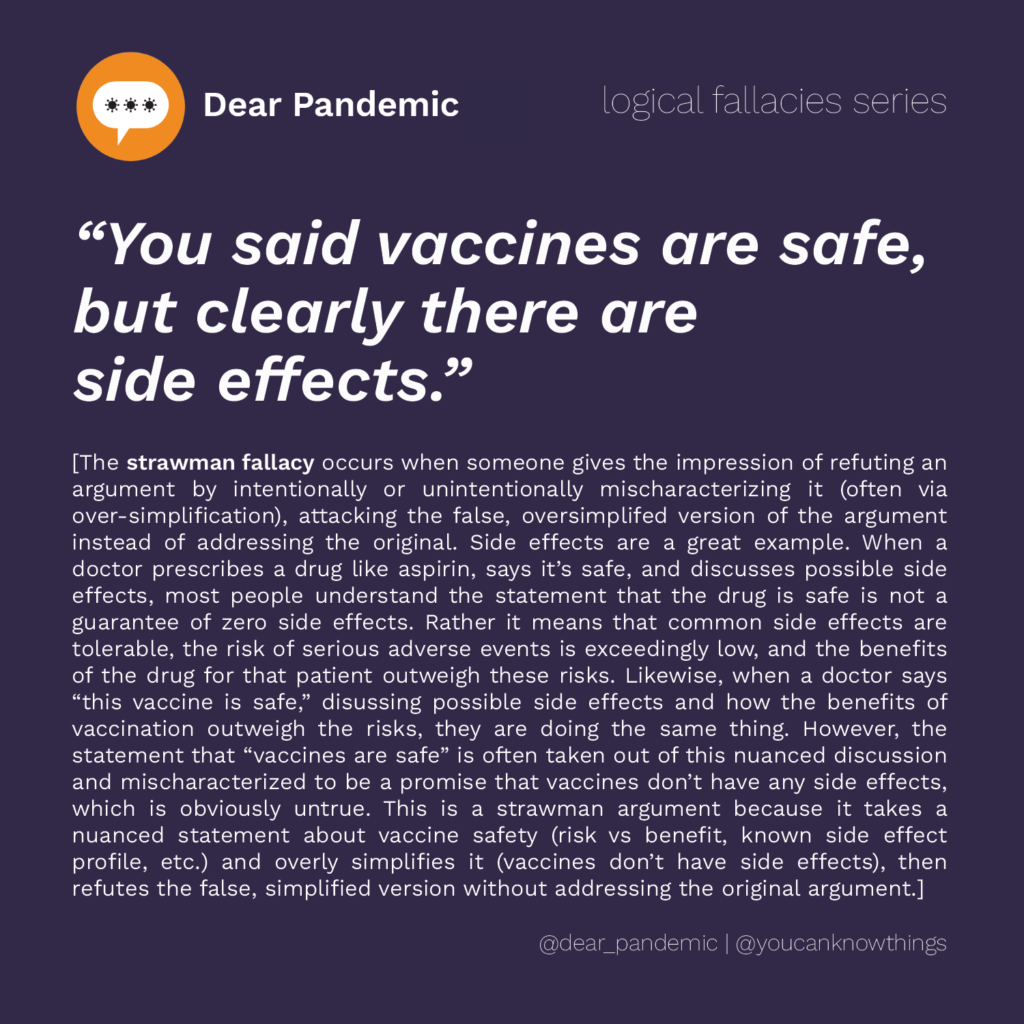At Dear Pandemic, we want to dish out science facts AND equip our readers with tools to make sense of data and science themselves.
This is the sixth post in an ongoing series by Dr. Kristen Panthagani of You Can Know Things, in which she dissects common logical fallacies that have led people astray during the pandemic.
🚩 The Strawman Fallacy
“You said the vaccines are safe, but clearly there are side effects.”
The straw man fallacy occurs when someone gives the impression of refuting an argument by intentionally or unintentionally mischaracterizing it (often via over-simplification), attacking the false, oversimplified version of the argument instead of addressing the original. Side effects are a great example. When a doctor prescribes a drug like aspirin, says it’s safe, and discusses possible side effects, most people understand the statement that the drug is safe is not a guarantee of zero side effects. Rather it means that common side effects are tolerable, the risk of serious adverse events is exceedingly low, and the benefits of the drug for that patient outweigh these risks.
Likewise, when a doctor says “this vaccine is safe,” discussing possible side effects and how the benefits of vaccination outweigh the risks, they are doing the same thing. However, the statement that “vaccines are safe” is often taken out of this nuanced discussion and mischaracterized to be a promise that vaccines don’t have any side effects, which is obviously untrue. This is a strawman argument because it takes a nuanced statement about vaccine safety (risk vs benefit, known side effect profile, etc.) and overly simplifies it (vaccines don’t have side effects), then refutes the false, simplified version without addressing the original argument.
A note on logical fallacies:
Logical fallacies are common patterns of reasoning that seem true on the surface but have one or more critical flaws. At their root, many are oversimplifications–like a cognitive shortcut. They are appealing because they make something complex, like vaccine safety or the efficacy of masks, into something simple and easy to understand. However, this oversimplification often leaves out important details, leading to the wrong conclusions.
Logical fallacies are common and used by people arguing both for and against nearly every pandemic topic. They are NOT a sign of stupidity or lack of intelligence: they have tripped up nearly everyone at some point. And just because someone uses a fallacy in their argument doesn’t automatically mean they’re wrong — (that’s the fallacy fallacy!). It simply means they haven’t provided adequate evidence supporting their argument, but that evidence may in fact exist. It’s useful to recognize logical fallacies in our own thinking so we can make more accurate conclusions about the world around us.
Stay Safe and Stay Sane!

More reading:
More in this series:
The Appeal to Authority Fallacy


